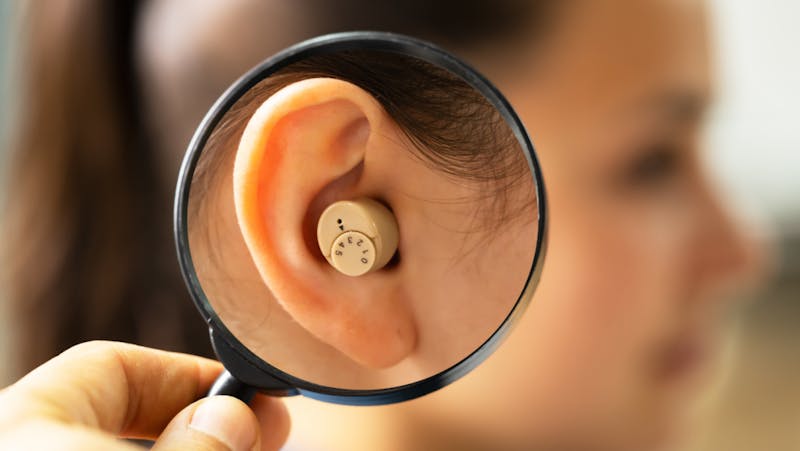
If you’re experiencing hearing loss, a hearing aid can make a world of difference. Not only can it improve your ability to hear and communicate, but it can also have a significant impact on your quality of life. Let’s take a closer look at hearing aids and what you need to know before you make a purchase.
What are hearing aids?
Hearing aids are small electronic devices that are designed to amplify sound. They work by picking up sounds through a microphone and converting them into electrical signals. These signals are then processed and amplified before being sent to the ear through a speaker.
Types of hearing aids
There are several types of hearing aids available on the market, including:
- Behind-the-ear (BTE)
- In-the-ear (ITE)
- In-the-canal (ITC)
- Completely-in-the-canal (CIC)
Each type has its own unique advantages and disadvantages, and the best option for you will depend on your specific needs and preferences.
How do I choose the right hearing aid?
Choosing the right hearing aid can be a daunting task, but there are a few factors to consider that can help make the process easier:
- Severity of hearing loss: The type of hearing aid you choose will depend on the severity of your hearing loss. Your audiologist can help you determine the best option for your specific needs.
- Lifestyle: Consider your daily activities and environments to determine the best hearing aid for your lifestyle. For example, if you’re active and enjoy outdoor activities, a BTE hearing aid may be a better option than an ITE.
- Budget: Hearing aids can be expensive, so it’s important to consider your budget when making a decision. However, keep in mind that a higher-priced hearing aid may have more advanced features and technology that can improve your hearing experience.
How do I maintain my hearing aid?
Proper maintenance is key to ensuring that your hearing aid lasts and functions properly. Here are a few tips to keep in mind:
- Clean your hearing aid regularly using a soft, dry cloth
- Avoid exposing your hearing aid to moisture or extreme temperatures
- Keep your hearing aid in a safe and dry place when not in use
- Schedule regular check-ups with your audiologist to ensure that your hearing aid is functioning properly
Conclusion
Hearing aids can be a life-changing investment for those experiencing hearing loss. With so many options available, it’s important to do your research and choose the right hearing aid for your specific needs. With proper maintenance and regular check-ups, your hearing aid can help you enjoy better hearing and communication for years to come.
For more information on what hearing aid is right for you, call 210-249-4838 or visit our site.

